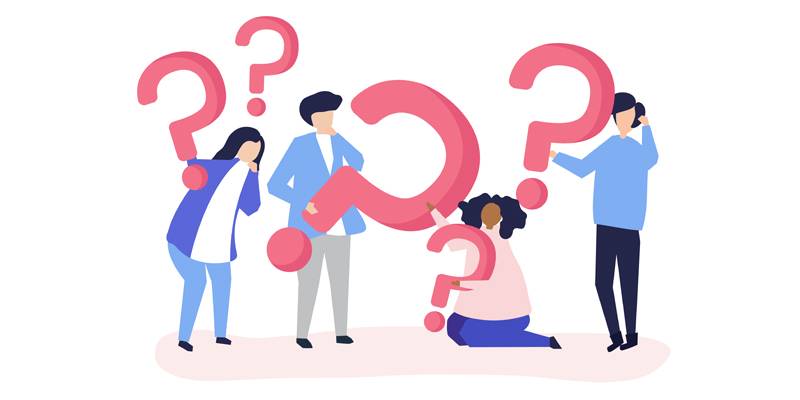What causes self-doubt and how to overcome it?

We all have two kinds of inner voices that empower or disempower us. The one that empowers us comes from our good experiences, high self-esteem, and confidence. It helps us in accomplishing things that we once thought we couldn’t do. The other one, which disempowers us, is the one that always pulls us back from doing things we aspire to do. That’s the villain voice in our head.
If you think that you want to buy a luxury car, your villain voice will feed you thoughts that you are poor and you can’t buy it, or you are not worthy of it. This is the voice that hinders our growth. It stems from previous experiences that have resulted in low self-esteem and confidence. These incidents create worse scenarios that then give birth to self-doubt. Anytime you feel like doing something, but your internal voice is questioning your self-worth…it means you have started doubting yourself. It’s the part of your subconscious mind that refuses to believe you’re good enough. We, as humans, tend to question a lot of things about our life and are uncertain about the way we want to lead them.
Sometimes, self-doubting can also prove to be a good thing. For instance, when you are trying something new that could be risky, a tinge of self-doubt can make you more cautious, and you will be less likely to make reckless mistakes. A tiny proportion of self-doubt is normal before you undertake a big decision like switching jobs or settling in another city or country. However, there is a fine line between good self-doubt and bad self-doubt. Good self-doubt encourages you to test things before you deep dive. On the other hand, bad self-doubt discourages you from even entertaining the thought of trying.
What causes self-doubts?
Past experiences and mistakes:
We all know that our past experiences have a massive impact on our lives and how we feel in our present. Anytime we reach some similar experience, we tend to feel those emotions again. Your subconscious mind will want to do everything possible to avoid feeling those emotions again. But remember this, your past does not and should not define your future. If you constantly live by the fear of your old mistakes, you’ll never look for new opportunities.
Comparison with others:
We all compare ourselves to others in a bid to see where we stand. We compare our work to that of our peers and even our lives with other people’s lives on social media sites such as Instagram or Facebook. We mentally challenge ourselves to outsell, outperform, or outwit our competitors. However, not all competition is healthy competition. Healthy competition pushes you to try your best and improve your performance for your own greater good. Compare yourself to who you were yesterday and make positive changes instead of comparing with others.
Childhood and upbringing:
Our childhood and upbringing play a huge role in shaping our mindset. While growing up, some people may judge you or tell you that you are not enough — they can be anyone, from friends to family members, teachers, to random strangers. At times, these remarks leave a negative impression on your subconscious mind that can last a lifetime. They are just feeding your villain’s voice and making it stronger. When you have not gotten proper support as a child or young adult, you can develop a habit of always questioning yourself. That’s why it is essential to devote time to your mental health.
How to overcome self-doubt?
Develop a positive mindset :
It’s imperative to develop a positive mindset when it comes to banishing self-doubts. Whenever you feel the negative hype of your inner voice, interrupt it and reframe it more positively. For instance, after preparing for an interview, you might fear that you won’t be able to clear the round. Instead of spiralling in a negative roller-coaster of emotions, choose to reframe your negative thoughts into positive ones — I am well prepared for the interview and I will ace it.
Be surrounded by positive people:
With negative thoughts running through your head, it’s of utmost importance that you surround yourself with positive people. By spending more time with those who have a positive mindset, you’ll become more accustomed to hearing positive things about yourself. You can learn to take compliments and, in turn, start giving those compliments to yourself.
Affirmations :
An affirmation is like a multivitamin that boosts your self-confidence. You can use these multivitamins to raise your heroic voice and suppress the villainous voices threatening to pull you down. However, you need to feel what you are affirming, or it will not be beneficial. For instance, if you are affirming that I am amazing, but deep down, you are feeling sad, then it’s fruitless. You need to bring that emotion and energy of how an amazing person feels and believe in it to make your affirmations actually work.
Gratitude:
An antidote to self-doubt is gratitude. Maintain a gratitude journal to be in a state of gratitude. The journal is a dedicated space where you list out all the things to be grateful for. You can write about anything, be it your sense of humour, your job, your family, or anything else that you love about your life. The purpose of this journal is to remind you of all the good that surrounds you — even when your self doubt has you convinced that nothing is right.
Self-compassionate:
When you start doubting yourself, it makes you feel that you’re unworthy or incapable. Over time, you can begin to not like who you are. But remember this, there is only one you in this world, and that is your superpower. Practice self-compassion by reminding yourself about your favourite qualities or personal accomplishments. It’s important to realise that you have an inner hero buried underneath that self-doubt— you just need to release it.






